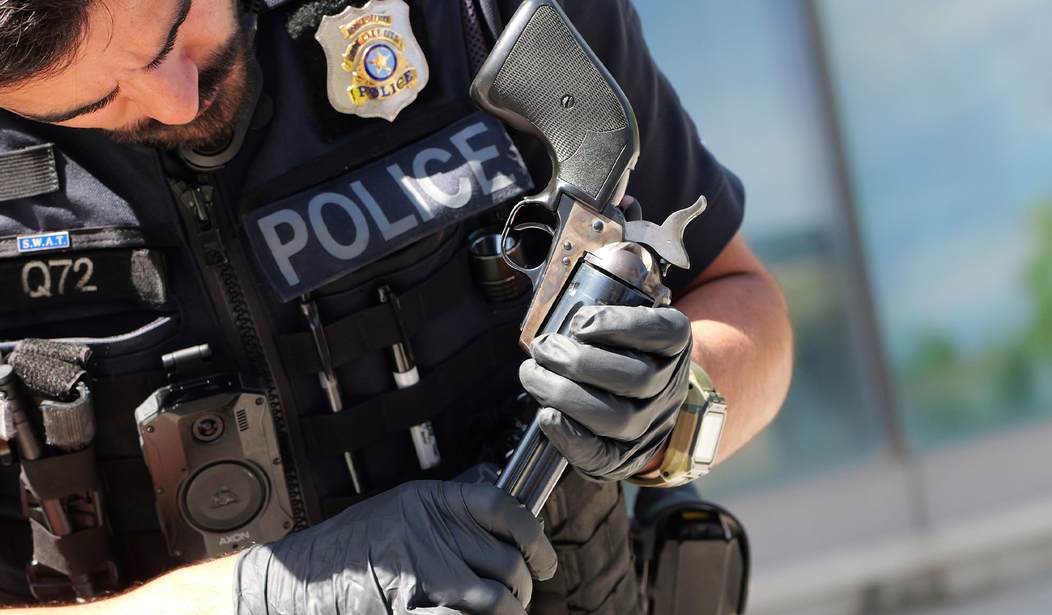Gun buybacks have been described as being bipartisanly supported, that both gun rights advocates and gun control advocates agree that these are good things.
I've never met a gun rights advocate who actually agreed with this, but it's been said. I guess they found that one guy or something.
Anyway, whether we agree or not, gun buybacks are a thing, particularly in areas that have a problem with violent crime. It's kabuki theater for the masses, a show to make it look like people are taking the issue seriously without having to actually do anything to actually take the issue seriously.
In New Mexico, for example, they've had a bunch.
Yet a TV station there has decided to ask the tough question most media won't ask.
This is the 19th gun buyback NMPGV has arranged in New Mexico in an effort to bring awareness to gun violence and hopefully prevent it.
"If we get even one gun out of the hands of somebody that is going to use it to harm themselves or harm others, then we've made a huge difference," said Mary Carmack-Altwies, the district attorney for Santa Fe. "Gun buybacks are an important tool. We have to attack it [gun violence] from multiple different sides. We do see a lot of gun violence in this state, so anything we can do to bring that number down, to get people to get those guns out of circulation is going to make an impact."
...
However, a report done earlier this year sponsored by the ThinkTank Rand Corporation, questions if this popular program helps reduce gun violence and crime.
Amanda Charbonneau, the author of the report, notes one reason why the effectiveness of gun buybacks is hard to measure is, "In particular, groups at elevated risk of firearm homicide might also be less likely to respond to voluntary surveys."
She also adds that high-risk individuals would be less likely to participate in a gun buyback for reasons such as: "Some individuals are making a calculated decision to own or carry a gun if they are at high risk of firearm violence." They could feel a lack of police protection or feel the value of their gun is worth more than what a buyback is offering.
This isn't the first time a media source has questioned buybacks.
Back in February, a writer for The Atlantic asked the same questions and found that no, they don't work. However, unlike a researcher for RAND, he didn't feel obligated to later go on and try to defend them despite the evidence as Charbonneau later does.
See, the problem with buybacks--beyond, of course, the fact that you can't buy something back you never owned in the first place--is that the people who represent the problem aren't people are who are going to turn in their guns. Basically, it would be like expecting a framing carpenter to sell his hammer or circular saw. These are the tools of his trade. He's not giving those up without a really good reason.
Criminals aren't selling their guns for a $250 gift card when they both likely paid more than that for the gun in the first place and can use it to make more than that.
Couple that with the fact that many criminals such as gang members carry guns for self-defense--it may be carried illegally, but they're people who don't want to get shot any more than you or I do--and you can give up this pipe dream that you can coax them to disarm.
Especially when their enemies won't.
It's time to acknowledge that while buybacks might have sounded like a good idea, they're not. They don't address crime and they don't "get even one gun out of the hands of somebody that is going to use it to harm themselves or harm others" no matter how much people like to delude themselves into thinking they do.
Let's spend that time and money trying to find something that actually works. You know, just to shake things up.







Join the conversation as a VIP Member